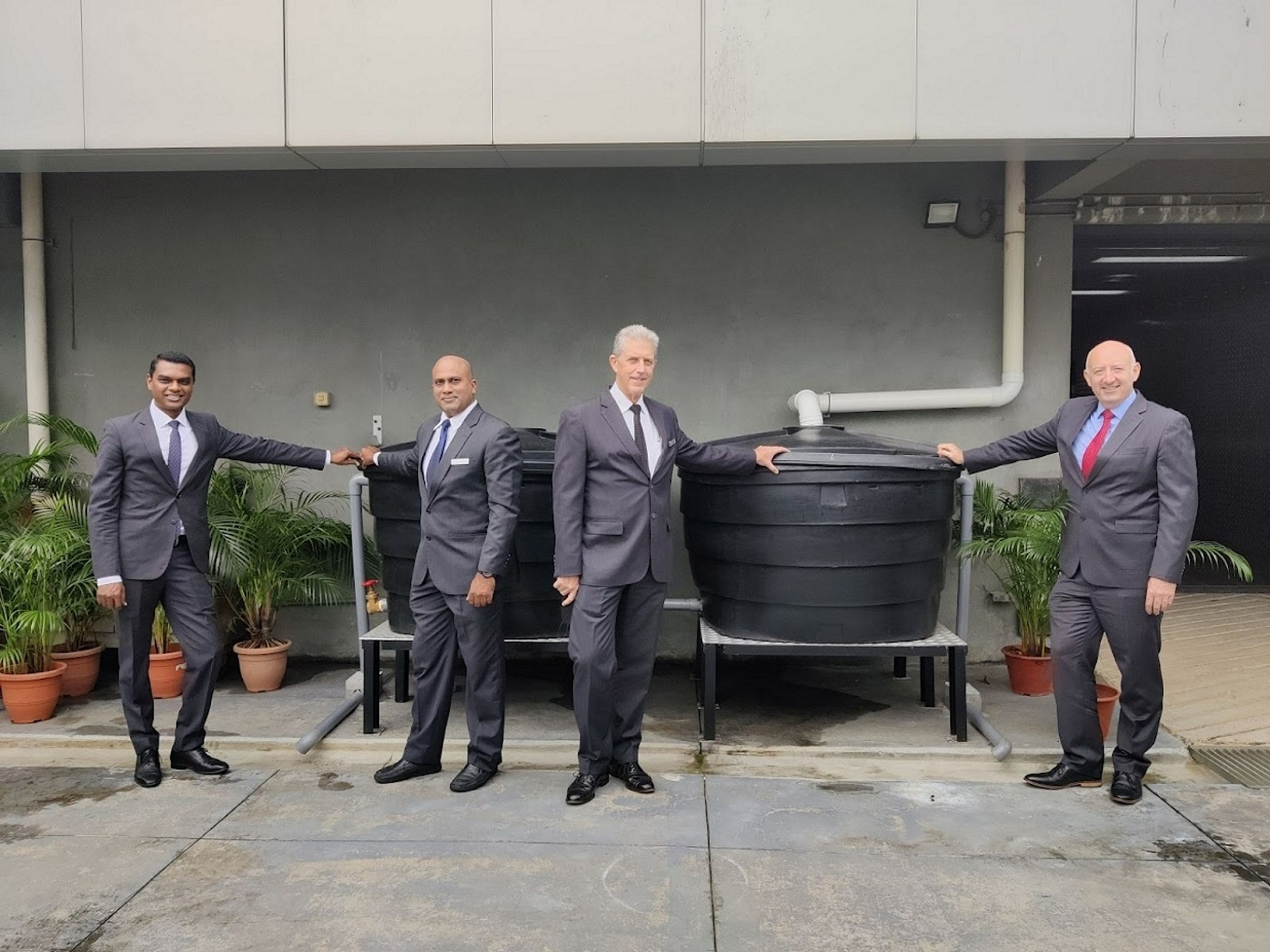Saving On Rainy Days – Kuala Lumpur Convention Centre addresses water scarcity with self-designed zero-energy rainwater harvesting system
Saving On Rainy Days – Kuala Lumpur Convention Centre addresses water scarcity with self-designed zero-energy rainwater harvesting system

Kuala Lumpur, November 18 – Leveraging Malaysia’s heavy rainfall as part of its sustainability strategies, the Kuala Lumpur Convention Centre (the Centre) reveals its newly installed zero-energy rainwater harvesting system, designed by its own team member.
Designed to effectively utilise the Centre’s architecture, the gravity-reliant system is comprised of four 300-gallon tanks constructed on the venue’s rooftop with the potential of harvesting up to 60,000 gallons of rain water a year. The collected water will primarily be used for day-to-day and post-event housekeeping works such as cleaning of loading bays and to provide non-chlorinated water to plants.
The Centre’s General Manager, Alan Pryor, said, “Water scarcity is a global problem and Malaysia is fortunate, due to its geographic location, to have a robust natural resource as a counter measure. We experience a high rate of rainfall thanks to the tropical rainforests and seasonal wind shifts which presents us with opportunities to derive sustainable solutions.”
The Centre’s Director of Facilities, Yugatheeswaran Arjunan, said, “The successful installation of this rainwater harvesting system is the realisation of our long-time dream. When first conceived about ten years ago, our biggest challenges were around cost and energy-efficiency. Our energy manager, Vikneswaran Murgaiah, designed a system that leverages gravitational energy making it not only 100% energy efficient but also cost-friendly, reducing almost 80% of the initial quotation. Since its installation, we have saved 5% of tap-water consumption used for our operational and maintenance activities.”
The global society’s shift towards a more socially conscious and responsible lifestyle is reflected in delegates and participants’ decision to choose events that have a powerful sustainable agenda over those with minimal social impact or none. As a result, having a strong sustainability policy and programme has transitioned into a critical requirement when organisers consider a venue from a cherry-on-top-of-the-cake mind set.
Pryor continued, “The industry requires an end-to-end approach in addressing this global change towards sustainable living and business. Venues have a fundamental role in helping the supply chain deliver to this need. This rainwater harvesting system is one of the many initiatives we have rolled out in achieving our sustainability goals that are aligned to the city’s developmental strategies, aimed at making Kuala Lumpur a world-class sustainable city.”
As an infrastructure asset for the capital city and Malaysia’s premier venue, the Centre constantly looks to transform the way it conducts business to be on par with the international standards of the business events industry.
“This installation, a pilot project with plans for expansion to increase savings, has inspired further interest within the KLCC precinct for wider implementation, with the desire of making the entire city-within-a-city development comprised of 5-star hotels and restaurants, world-class meetings and events venue, popular premium lifestyle and entertainment outlets, a sustainable destination for business and leisure travellers alike,” concluded Pryor.



